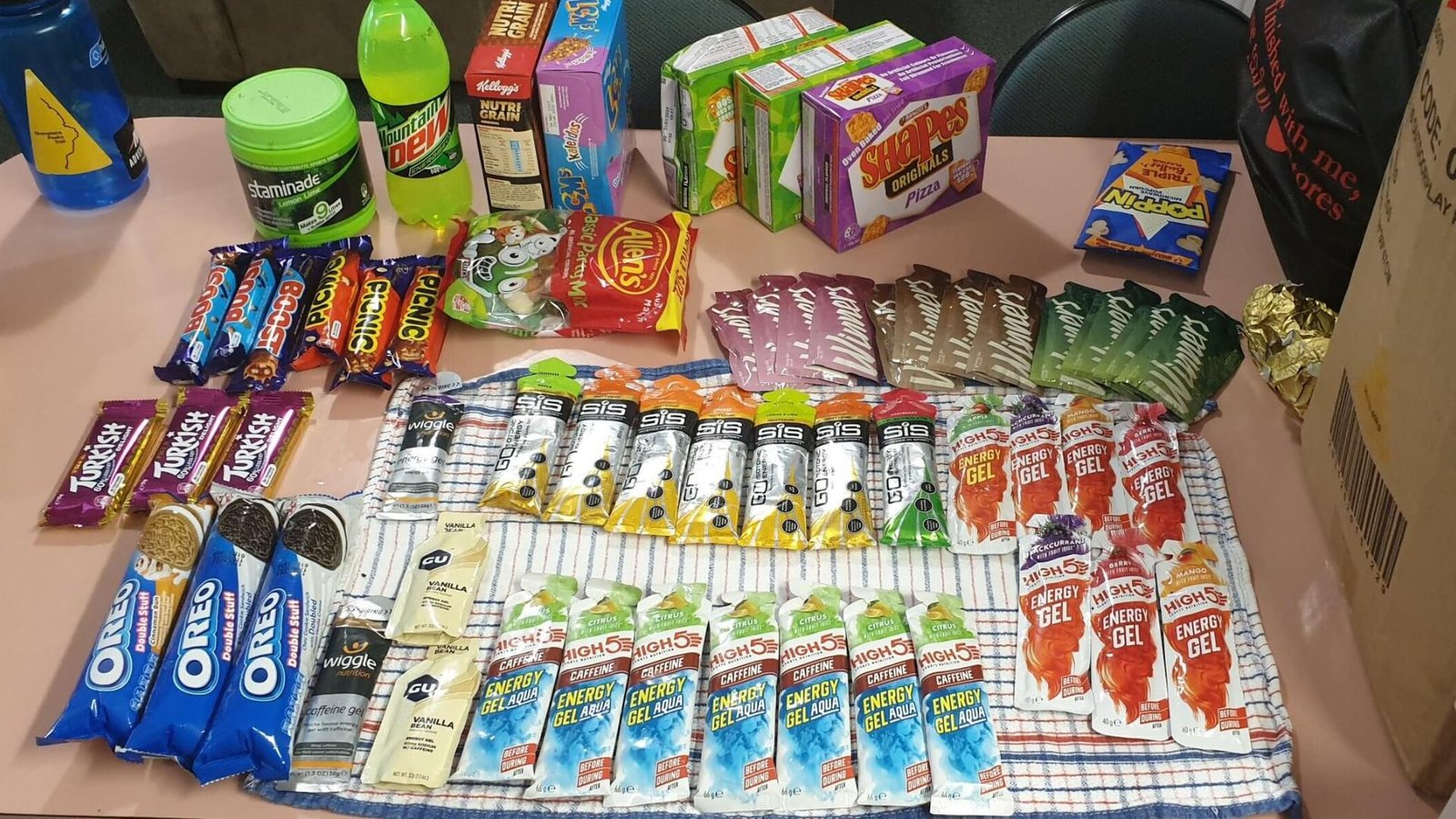Proper nutrition is vital for ultramarathon success. Running long distances requires more than just hydration—it also demands the right balance of energy, electrolytes, and recovery food. Here’s how to fuel your body to perform at its best during an ultramarathon.

Pre-Race Nutrition
In the days leading up to the race, focus on fueling your body with complex carbohydrates. Foods like pasta, rice, and sweet potatoes provide long-lasting energy. Aim to eat balanced meals, including lean protein and healthy fats, to support muscle repair and energy storage.
The night before the race, eat a familiar meal that is easy to digest. Avoid trying new foods, which may cause stomach issues on race day. Stay hydrated by drinking plenty of water throughout the day.
In-Race Nutrition
During an ultramarathon, you need to eat regularly to maintain energy levels. Focus on consuming easily digestible foods that offer quick-release carbohydrates. Energy gels, chews, and bars are great options for mid-race fueling. Be sure to practice with these foods during training to avoid stomach discomfort.
Aim to eat every 30 to 45 minutes, depending on your pace and energy needs. Alternate between solid foods and liquid calories, such as sports drinks or electrolyte tablets. Keep your energy levels stable by consuming a mix of carbohydrates, fats, and proteins when possible.
Hydration Is Key
Staying hydrated is critical during an ultramarathon. Dehydration can impair your performance and increase the risk of injury. Drink water regularly, but also replenish lost electrolytes. Sports drinks or electrolyte tablets are helpful for maintaining sodium, potassium, and magnesium levels.
It’s important not to overhydrate, as this can lead to hyponatremia (low sodium levels). Drink small amounts consistently instead of large quantities at once. Adjust your fluid intake based on the weather and your sweat rate.
Post-Race Nutrition
After crossing the finish line, your body needs to recover with proper nutrition. Aim to eat a balanced meal with carbohydrates, protein, and healthy fats within 30 to 60 minutes of finishing. Carbs help replenish glycogen stores, while protein supports muscle repair.
Consider consuming a recovery drink or smoothie to quickly replenish nutrients and rehydrate. Continue eating nutritious meals throughout the day to support recovery and reduce muscle soreness.
Experiment During Training
Race-day nutrition requires trial and error. Every runner’s body responds differently to food, so it’s crucial to experiment during training. Practice your in-race nutrition plan, including types of food, timing, and hydration strategies.
Test different foods and drinks to see what works best for you. Avoid making significant changes to your nutrition plan just before race day.
Fuel for Endurance
Ultramarathon nutrition is about endurance, not speed. Focus on steady, consistent fueling throughout the race. Avoid “crash” foods that provide a quick sugar rush, as these can lead to energy slumps. Instead, opt for slow-burning, nutrient-rich foods like nuts, dried fruit, and oatmeal.
Balance your meals and snacks to avoid energy dips. Listen to your body and adjust your intake as needed to keep moving forward.
Conclusion
Nutrition plays a huge role in ultramarathon performance. Pre-race, in-race, and post-race fueling all need to be carefully planned. Focus on hydration, balanced meals, and easily digestible snacks to maintain energy throughout the race. Practice your nutrition strategy during training, and make adjustments based on your body’s needs. With the right fuel, you’ll be ready to tackle your ultramarathon and achieve success.











